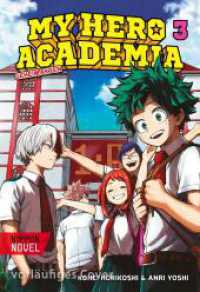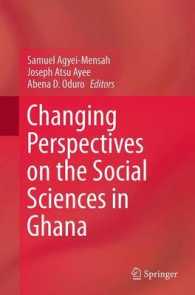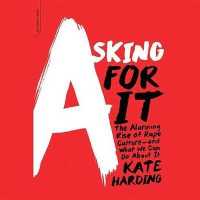Full Description
Today's students need to know how to locate, comprehend, evaluate, and use online information efficiently and effectively. This widely used teacher guide and course text provides a framework for maximizing students' critical, creative use of the Web in grades 3-8. Research-based strategies for instruction and assessment across the content areas are clearly explained and linked to the Common Core State Standards (CCSS). In a large-size format for easy photocopying, the book is packed with graphics, sidebars, lesson plans, and more than 90 reproducible handouts. Purchasers get access to a Web page where they can download and print the reproducible materials.New to This EditionIncorporates state-of-the-art research and Web resources.Chapter on major Web 3.0 developments, such as the rise of social media and mobile devices.Connections to the CCSS are identified throughout.Stronger focus on Universal Design for Learning and differentiated instruction.Larger format facilitates photocopying of the updated reproducible tools.
Contents
1. Opportunities and ChallengesOh, What a Tangled Web We WeaveDriving without a License: Gen Zs on the WebRoadblocks on the Way to the Information SuperhighwayResearch Is Not a Four-Letter WordInternet Inquiry: The Sweet SpotA Web Literacy CurriculumSummary2. Learning How to LearnLearning by Doing: ConstructivismLearning with Others: SocioculturalismLearning through Symbols: SemioticsUniversal Design for LearningElements of Effective InstructionOutcomes of Effective InstructionThe Educator's RoleSummary3. Becoming LiterateLiteracy Family TreeCueing Systems TheoryTransactional TheoryReading Comprehension StrategiesFoundational Reading SkillsInformational TextThe Reciprocal Nature of LearningSummary4. Preparing for the QUESTThe QUEST Model of Internet InquiryTechnical PreparationConceptual PreparationAssessing Internet Inquiry StrategiesSummaryHandouts5. QuestioningWhy Is Questioning Important?What Characterizes "Good" Questions?How Do We Teach Questioning Strategies?SummaryHandouts6. Understanding ResourcesWhy Is It Important to Understand Resources?When Do We Need to Use Resources?What Characterizes Effective Use of Resources?How Do We Teach Strategies for Understanding Resources?SummaryHandouts7. EvaluatingWhy Is It Important to Evaluate?When Do We Evaluate?What Characterizes Evaluation?How Do We Teach Evaluation Strategies?SummaryHandouts8. SynthesizingWhy Is It Important to Synthesize?When Do We Synthesize?What Characterizes Synthesis?How Do We Teach Synthesis Strategies?SummaryHandouts9. TransformingWhy Is It Important to Transform Information?When Do We Transform Information?What Characterizes Information Transformation?How Do We Teach Transformation Strategies?SummaryHandouts10. Reflecting on the QUESTReflecting: What Have I Learned as a Teacher?What Have My Students Learned?What Have We Learned as Authors?Final ThoughtsReferencesIndex








